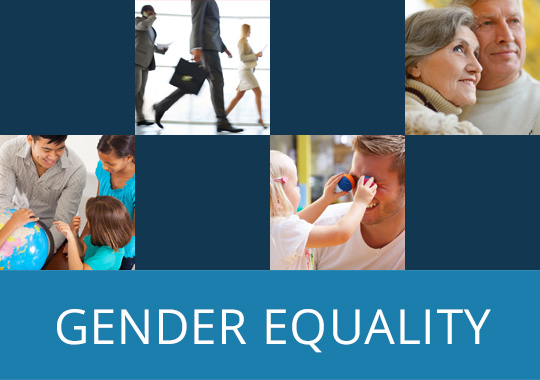Social economic rights and social policies

The main inequalities and differences between women and men in the socio-economic field relate to employment as women feature predominantly in part-time work and lower-paid occupations, and they continue to face a series of inequalities (e.g. in relation to remuneration, pensions, promotions and access to decision-making). Women are also still the main carers within families, which impacts on their use of public services, on their ability to engage in paid employment, in decision making and in other social activities. As result of combined inequalities, women also have lesser income than men. All these aspects should be taken into consideration so that social policies contribute to real equality between women and men.
Gender mainstreaming and socio-economic rights and social policies at the Council of Europe
The European Social Charter enshrines a body of rights in the field of housing, health, education, employment, social protection, movement of persons and non-discrimination, whose application must ensure equality between women and men. The European Committee of Social Rights monitors compliance with the Charter under two mechanisms: collective complaints lodged by social partners and non-governmental organisations, and through national reports submitted by Contracting Parties.
Council of Europe's activities and tools
- The European Committee of Social Rights’ decision on admissibility of 15 complaints lodged by the NGO University Women of Europe for alleged violation of the rights to work, to fair remuneration, and to equal opportunities and equal treatment in employment and occupation without discrimination on the grounds of sex, 2017
- The Committee of Ministers’ Recommendation (2015)3 on the access of young people from disadvantaged neighbourhoods to social rights. Specific request of gender-sensitive approaches to the elaboration of youth policies in disadvantaged neighbourhoods, 2015
- The European Committee of Social Rights’ Decision on admissibility and the merits regarding a claim on women’s access to abortions in Italy, 2014



